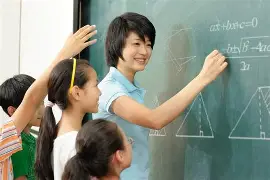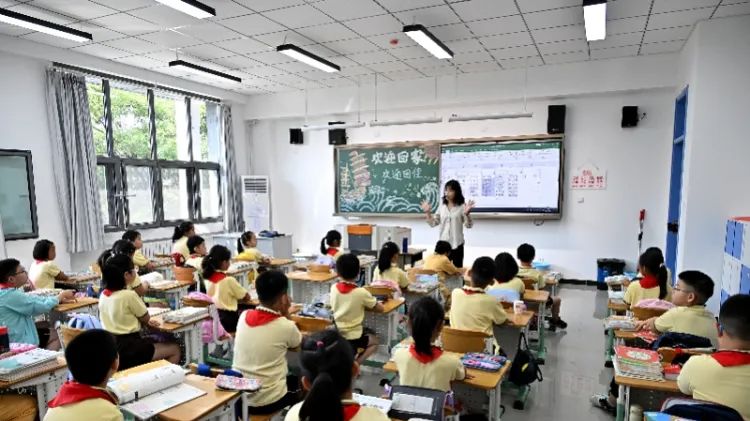"The leader is on a business trip, and the school runs as usual; the class teacher takes leave, and the class immediately becomes "a pot of porridge." This message from a front-line teacher in Jiahe, Hunan once again put "the shortage of class teachers" on the hot search in September 2025. Starting from the new semester, principals in many places can only get a list of class teachers by begging grandpa and grandma; some schools even adopt tough measures such as "going lots" or "prerequisites for evaluating professional titles", but they still cannot stop teachers from "sexing their class teachers" from "talking about class teachers". When "unwilling to do" evolves from individual emotions to group choices, we can no longer simplify the problem to "teachers are afraid of suffering", but must answer: Why does the position of class teacher lose its attractiveness? Should the allowance be increased? Where is the boundary of responsibilities? In a time when "double reduction", home-school conflicts, and high pressure on public opinion are superimposed, how can we rebuild a system that allows teachers to "be willing to do, do well, and have dignity"? This article attempts to use five thousand words to assemble the fragments scattered everywhere into a landable reform roadmap.

Four faces of "Class Teacher Huang". Time shortage: "24-hour standby" has become the standard configuration. I arrived at school to watch morning reading at 6:30 in the morning, and at 10:30 in the evening, I also replied in the parent group "Why was the child transferred to the fourth row today"; forms, check-in, drug control, drowning prevention, anti-fraud, myopia prevention and control... All kinds of APP traces must be "cleared" within 24 hours. "Getting off work" is just a change of location for the head teacher to continue working. Responsibility shortage: Legally, the class teacher is "the first responsible person for students during school"; administratively, it is the terminal of "a thousand threads and a needle"; public opinion is the first priority for "students will take the blame when they happen." The students scrambled to the school during class, and the parents rushed into the school with their mobile phones. The first sentence was "Where is the class teacher?"
Economic shortage: The national average class teacher allowance is 300 yuan/month, and the lowest area is only 10 yuan/month, and it is often deducted quantitatively. The extra working hours are converted into hourly wages, less than 1 yuan, "even going to the hospital to see a throat and prescribe medicine" [5]. Psychological shortage: The detection rate of depression tendency among class teachers caused by long-term high pressure was 28.7%, significantly higher than that of ordinary teachers (18.5%) and national total (6.5%). An internal survey by a provincial capital education bureau in 2024 showed that 83% of teachers who have transferred jobs and taken long leave due to "severe anxiety" in the past three years have served as class teachers.
Perspective of the reason: From "unlimited liability" to "institutional indifference". The boundaries of responsibilities are blurred: "Class teacher = subject teacher + policeman + social worker + psychologist + government customer service + public opinion firefighter". The official document only writes "cultivating morality and educating people", but does not write "What matters do not belong to the class teacher". The "Regulations on Working Class Teachers in Primary and Secondary Schools" has been promulgated for 15 years, but there is no supporting "negative list", which has led to "the work that the superior department wants to dump is left to the class teacher." Incentive mechanism failure: the allowance standard is still based on the "15 yuan per month" of the Notice on Improving the allowance standard for primary and secondary school class teachers" in 1988. The finances of various places "read the food and eat" are 600 yuan in the eastern wealthy counties and 30 yuan in the western mountainous areas, a 20-fold gap; and 70% of the regions include allowances in the total performance salary, which is equivalent to "rewarding yourself with your own money"
The evaluation system distorts: the evaluation of professional titles and evaluation of excellence and excellence often stays on paper. In reality, the class teacher lags behind due to many chores and teaching grades, and does not have an advantage in "quantitative scoring"; at the same time, students violate discipline and decline in grades but implement "reverse deductions", forming a reverse elimination of "doing more mistakes and not doing well". The lack of support system: After the "double reduction", after-school services, clubs, study and labor education have been fully introduced to the campus, but the staffing has not increased simultaneously. In 2023, the national ratio of ordinary primary school students' teachers was 18.3:1, which was still higher than the OECD average of 14.9:1; the ratio of full-time psychological teachers was 1:1200, which was far lower than the requirement of the Ministry of Education 1:500. The staff gap will eventually be "filled" by the class teacher.
Do you want to increase the allowance? ——The triple calculation of finance, market and dignity. Financial Perspective: According to the calculation of 560,000 classes nationwide and one class teacher per class, if the allowance is uniformly increased to 1,000 yuan/month, the annual increase of 6.72 billion yuan, accounting for only 2% of the national public funds for compulsory education (336.4 billion yuan) in 2023, which is equivalent to an increase of 12 yuan per student, which is completely within the affordable range.
Market perspective: The additional working hours of the class teacher are converted into an average hourly salary of 80 yuan in local tutors, and a monthly subsidy of 2,240 yuan should be subsidized; if the "risk premium" is considered, the reasonable range should be between 1,500 and 2,000 yuan. Allowances for similar jobs in Japan, Singapore and Canada account for 15% to 20% of the total teacher income, while in my country it is currently less than 3%. Dignity Perspective: Allowances are not only money, but also "recognition of value". During the interview, a female teacher in the county said: "I can accept being tired, but I cannot accept being despised. 10 yuan is like giving it to a beggar, and I still expect me to be grateful?" When the symbolic meaning falls below the psychological bottom line, no matter how high the "honor" is, it will lose its attractiveness. Conclusion: The allowance must increase, but the "how much to rise" must be designed in synchronization with "how much to decrease" or "how much to decrease", otherwise simply adding money will only become "buy life money" and cannot be sustained.
International Mirror: How can the "class teacher" avoid "taking the blame" abroad. United States: Middle schools implement the "House system" (college system), with one "Advisor" for every 20 to 25 students, full-time responsible for career planning and home-school liaison; subject discipline is the responsibility of the teachers, student psychology is intervened by the social worker in the school, safety is handled by the school police (SRO), and responsibility is cut off by the law. Finland: The "Class Teacher" is only responsible for the lower grades of primary schools, and the 15 classes per week are topped off; administrative affairs are jointly undertaken by the "Student Welfare Team" (principal, psychologist, special education, nurses, social workers). Teachers only need to fill out an A4 weekly report. Japan: The "teacher" allowance is 16% to 20% monthly salary, and 2 to 4 regular classes can be exempted; the government purchases "after-school children's classroom" services, and third-party institutions undertake 70% of after-school management, and teachers must leave school at 16:30.
Common experience: ① “double in place” allowances and class exemptions; ② Clear division of responsibilities by law; ③ The school has sufficient resident professionals; ④ Parents have high participation but clear boundaries, and there are channels for arbitration for complaints.
System reconstruction: "Let the class teacher become a competent, developable and withdrawable position." Responsibility Boundary: Release a nationwide unified "Negative List of Class Teachers". It is strictly forbidden to transfer the following matters to the class teacher: check-in, voting, likes, sales, insurance that are not related to education; government administrative tasks such as departmental special investigations, population census, and economic census; any work that requires teachers to advance their personal expenses; non-education and teaching APP data entry. Establish an approval system for "business into campus": county-level education administrative departments establish a "burden reduction office", all tasks must be reviewed first, and the funds and personnel are provided, otherwise the school may refuse to implement them. Formulate the "Campus Safety Responsibility Sharing List": Student accidents are written into local regulations by the principle of "who is present and who is responsible", and the class teacher only bears "educational responsibility" rather than "unlimited compensation".
Incentive mechanism: "1+N" allowance and honor package. The central government has established a "special transfer payment for class teachers", with an average student of 120 yuan/year, ensuring the national bottom line of 800 yuan/month; the provincial finance sets a coefficient of 0.5 to 2.0 based on boarders, class size, and remoteness, with a maximum of 2,000 yuan/month; the performance payroll is listed as a "class teacher pool" and cannot be linked to subject scores and student violations; a "class teacher green channel" is set up for professional title evaluation: ① When applying for senior professional titles, you must serve as a class teacher for more than 3 years, but it can be "flexible cumulative"; ② When evaluating and appointing, a 10% indicator is listed separately, and the evaluation is given priority; a "class teacher annual leave" system is established: for 6 consecutive years, you can enjoy one semester of "paid off-job training or scientific research, and the school purchases service classes.
